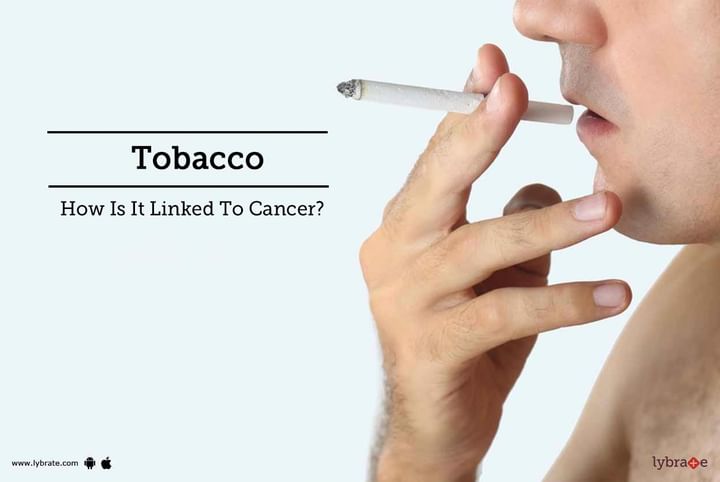Tobacco - How Is It Linked To Cancer?
Conventional wisdom makes us believe that the only type of cancer caused due to smoking is lung cancer. However, recent studies have greatly detailed the fact that smoking or the consumption of tobacco products can cause esophagus, pancreas, liver, kidney, stomach, among other types of cancer.
The Various Chemical Carcinogens Present In Tobacco
Thus, smoking is by far the largest preventable cause of cancer. The solution is simple: stop smoking. Tobacco products contain certain elements that are widely believed to cause cancer. These elements also referred to as carcinogens are either naturally part of the tobacco-producing plant or are added to it by the tobacco manufacturer. The latter carcinogens include benzene, certain tobacco-specific nitrosamines, and formaldehyde. The quantity and the specificity of carcinogens differ from manufacturer to manufacturer and country to country.
Continuous consumption of products which contain carcinogens will inevitably result in the formation of cancer. The IARC (International Agency for Research on Cancer) has already designated certain chemicals found in tobacco and tobacco-related products as human carcinogens.
The Effects of the Chemical Carcinogens -
It must be emphasized that there is no safe way to consume tobacco. From cigarettes and pipes to smokeless tobacco and cigars – all of them lead to the same result. Chemicals found in tobacco reduce the ability of our immune system, making it harder for it to kill cancerous cells. This ensures that cancerous cells simply multiply without it being stopped or killed. Moreover, the same chemicals also alter the “DNA structure” and the instructions of the DNA which leads to cells growing out of control and abetting the cancerous tumor.
How do the carcinogens enter our bloodstream?
These chemicals are delivered into our bloodstream by virtue of us breathing in the smoke. Once the chemicals enter our bloodstream, it travels to all parts of our body – carrying this carcinogenic chemical. Non-smokers who stand beside individuals who are smoking (secondhand smoking) become passive smokers, also inhale the harmful smoke. The World Health Organization estimates that 10% of all smoking-related deaths are due to passive or secondhand smoking.
How long does it take for cancer to develop?
While there is no specific time-frame linking consumption of tobacco to the development of cancer, it is estimated that it takes many years or even decades for cancer to develop. Our body’s immune system is vested with the power to cope up with limited damage, however, persistent smoking tendencies and the chemical carcinogens entering our bloodstreams – irreversibly damage the DNA in many lung cells.
Thus, in conclusion, it is highly advisable to quit smoking sooner rather than later. Tobacco causes long-term and irreparable damage to our bodily organs.



+1.svg)
